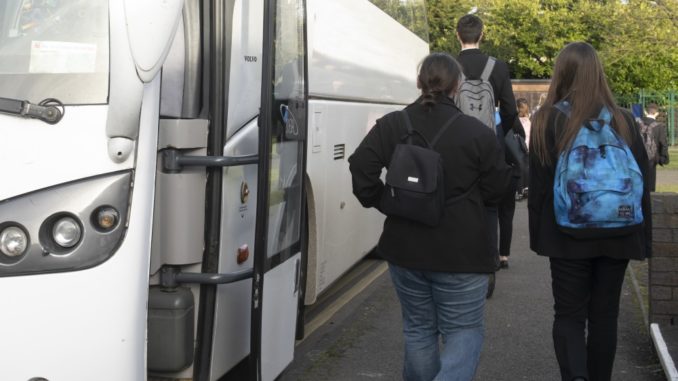
An education boss has defended a decision to raise school transport charges by 22 per cent for pupils aged over 16 without consulting the public.
As opposition councillors launched last-minute action to stall the move, North Yorkshire County Council executive member for education Councillor Patrick Mulligan said the authority needed to address its £2.4m annual overspend on Home to School transport.
The decision, described by some councillors as “an eye-watering increase”, made the authority the latest in a string of councils to up its post-16 school transport fees as Department for Education reviews the statutory guidance for Home to School Transport.
A public consultation on the matter was expected last autumn of 2018, but due to the political priorities of Brexit, this did not happen.
The North Yorkshire authority’s decision to increase transport fees for post-16 students by £110 to £600 a year was made last Tuesday at a private meeting between the Tory-led council’s corporate director for children and young people and Cllr Mulligan.
Cllr Mulligan said the council’s constitution enabled such decisions on fees to be made by leading officers in consultation with executive members, so it had been unnecessary to gather the views of the public or other councillors.
He said the increase would see the authority’s travel fees for post-16 students rise from among the lowest to about average among all 26 county councils and provide an extra £130,000 towards the service.
Cllr Mulligan added: “We are still highly subsidising this area as the average cost to a mainstream school is £900 a year on a seat on a coach and up to £30,000 annually for pupils who need specialist provision with passenger assistance.
“We do make provision for low income families, who pay 50 per cent of the contribution.”
Leader of the council’s Independent group Councillor John Blackie said he and six colleagues were calling in a decision for the first time this administration as the hike in fees – which equates to a rise from £1.29 to £1.58 per journey – would have a significant impact on many household budgets.
The call-in is likely to delay the increase as it will be reviewed by a council scrutiny committee before executive members reconsider it.
Cllr Blackie said: “The council may have a pressing overspend, but that doesn’t mean you can ignore the people who will bear the burden of it.”
The Upper Dales member said while it was unacceptable that the increase had been imposed the week before it was due to be paid, the charge was discriminatory in that those who lived furthest from schools and colleges would have the least chance of finding alternative ways of getting there.
He said the increase would “leave a stark choice for parents to pay up, or for the student to give up on his or her career potential, and find a full-time unskilled job locally”.
Cllr Blackie said if an increase had to be implemented it should be no more than £25 a year phased over the next four years.
He said: “Many families here in the Upper Dales are struggling financially and the extra charge is an unexpected blow that adds to their troubles.
“It is almost like a tax on living in the countryside.”


Be the first to comment